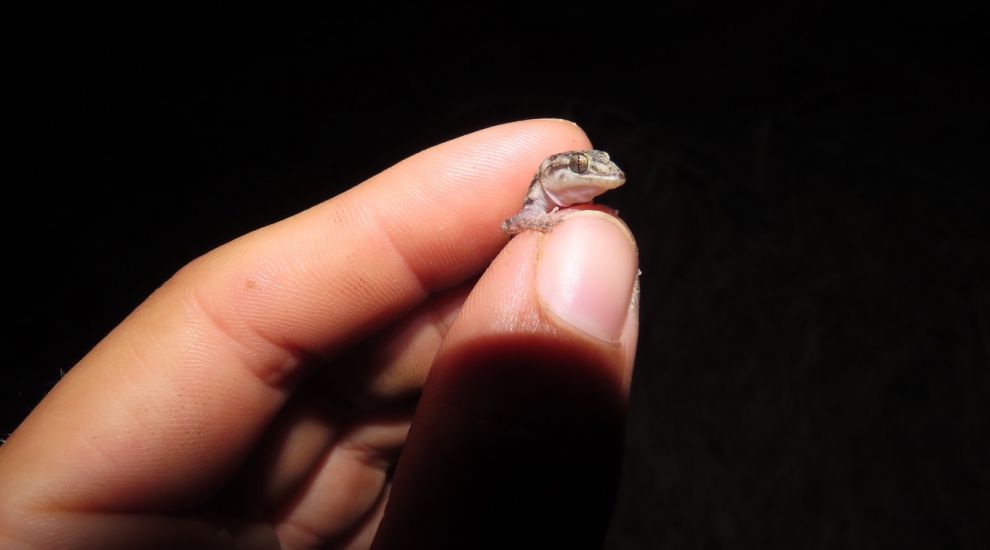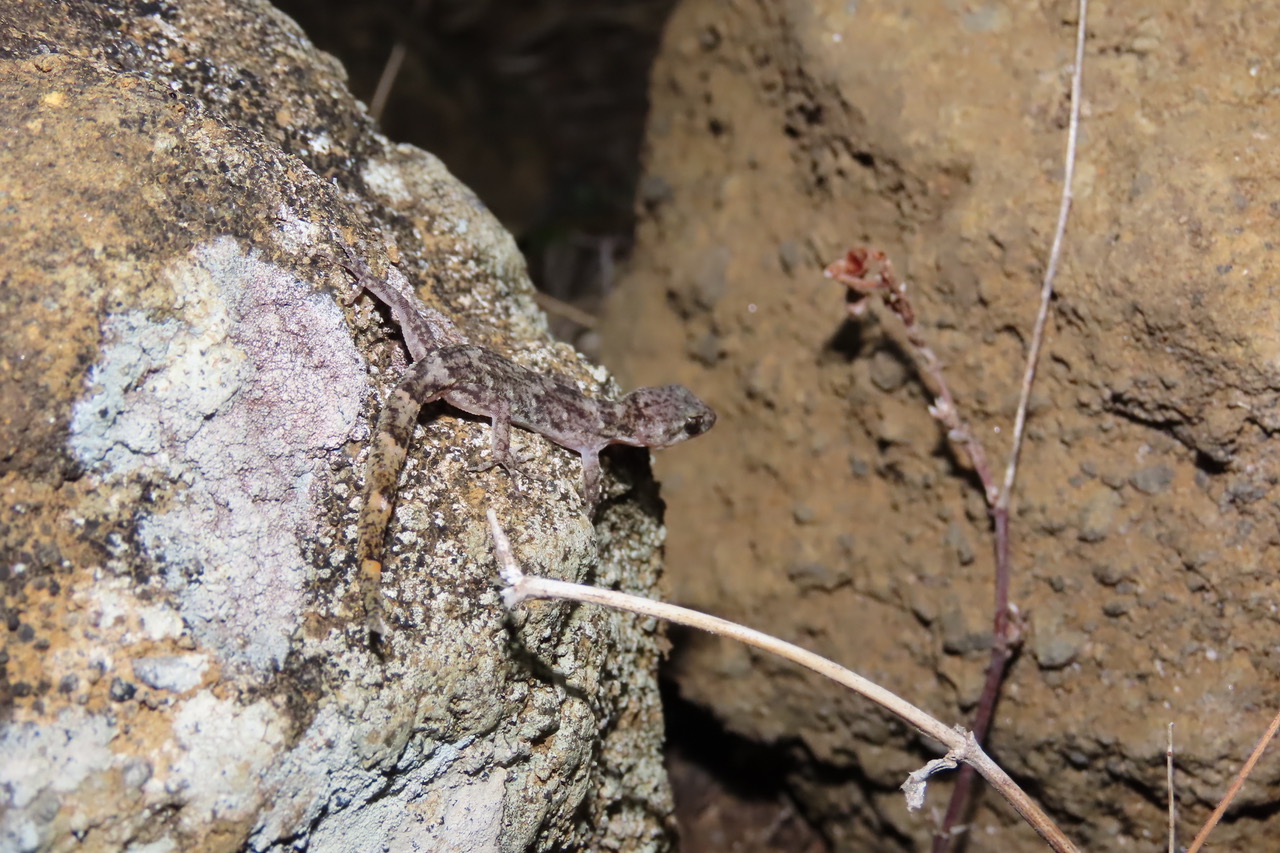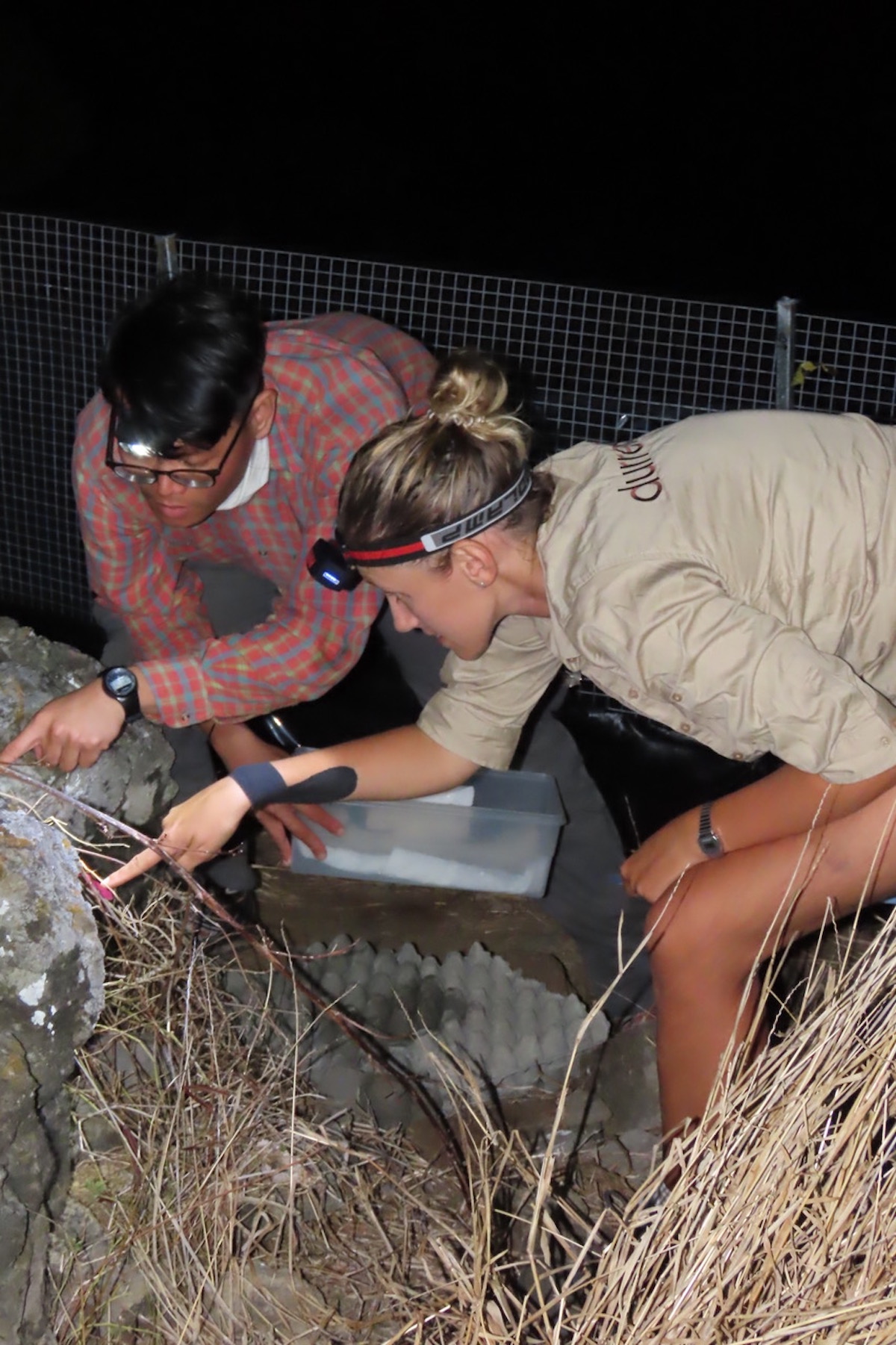


More than 100 tiny, vulnerable geckos have been reintroduced to an island in Mauritius thanks to a Jersey conservation charity - and some have already laid eggs.
Between 31 October and 4 November 2022, 120 lesser night geckos were moved from the Mauritian islet Gunner’s Quoin to Round Island, just North of the Mauritian mainland.
The move was undertaken by Durrell Wildlife Conservation Trust, in collaboration with the Mauritian Wildlife Foundation, National Parks and Conservation Service, Forestry Service, Zoological Society of London, and the University of Kent.
The small geckos, which grow up to 6cm long from head to tail, were taken from a population of around 14,000 individuals on Gunner’s Quoin.

Pictured: The lesser night gecko.
Over the past 400 years, the reptiles in Mauritius have been severely impacted by habitat loss.
Before conservation efforts began, Round Island was invaded by goats and rabbits, stripping the island of vegetation, and subsequently exposing small species like the gecko to predators.
In efforts to rebuild populations and reduce the risk of further extinction, the geckos were moved to Round Island, which is now closely monitored by conservationists.
Released into four predator-proof fenced enclosures, the geckos will be given time to settle into their new home before the fences are removed.
Post-release monitoring has also begun, and Durrell says the geckos are looking healthy. Some have even laid eggs since arriving on Round Island, sparking hope for juveniles to hatch in early 2023.

Pictured: 120 lesser night geckos were moved from Gunner’s Quoin to Round Island.
Durrell’s Island Restoration Manager, Nik Cole, said: “After years of planning, we hope that establishing the lesser night gecko’s population will lessen the species' extinction risk.
"It will also help bring resilience into the entire ecosystem on Round Island, as the geckos are a valuable prey species for other animals.
"We hope that this project will teach us more about how to bring other highly threatened prey species back into these unique ecosystems.”
Comments
Comments on this story express the views of the commentator only, not Bailiwick Publishing. We are unable to guarantee the accuracy of any of those comments.